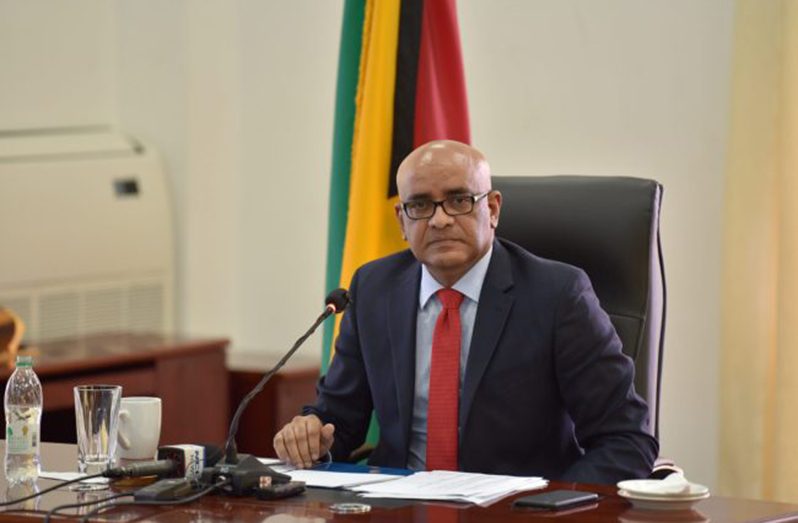A DRAFT of the amended Representation of the People Act is currently being prepared, and should be ready for consultation by the end of June, 2021, according to Vice President, Bharrat Jagdeo, who emphasised that all stakeholders, including the main opposition– A Partnership for National Unity + Alliance for Change (APNU+AFC)– will have access to review and make inputs.
In addition to the political parties, the document will also be circulated to members of the international community, as well as civil society, and the Guyana Elections Commission (GECOM).
“People would have three months in Guyana to give their input. And we will look at issues right from registration, to declaration of the results,” Jagdeo informed a press conference on Friday, held at the Arthur Chung Conference Centre.
He said that the amendments to the election laws seek to ensure that the guidelines are “more transparent” and free from ambiguity. “…to put in place a set of penalties for people [who have] tried to steal the elections,” Jagdeo specified.

The Vice President indicated that the amendments will also speak directly to the public release of Statements of Poll (SoPs), prior to the tabulation of votes. This, Jagdeo said, is intended to prevent a reoccurrence of the drama that surrounded the 2020 General and Regional Elections.
He said that once the consultation process is complete and the draft document is finalised, it will be taken to the National Assembly, where the parliamentary opposition will have yet another opportunity to raise concerns and make their input.
Jagdeo also put to rest concerns relating to the involvement of the International Republic Institute (IRI), and its role in Guyana’s electoral reform efforts, explaining that the body will merely be supporting the process.
“They may provide consultants who may do the drafting for us, etc.”
Jagdeo assured that electoral reform rests solely on the lawmakers of Guyana, and not in foreign hands.
“When the debate takes place, it’s between the Guyanese who will decide what will finally be the amendments. It will be the Opposition and Government in the Parliament that will pass the final law and you will have a full-fledged debate,” the Vice President posited.
With Local Government Elections due for this year, Jagdeo said that the People’s Progressive Party/Civic (PPP/C) government will not go to the polls with persons such as Keith Lowenfield still being employees of GECOM. Lowenfield– the Chief Elections Officer– and the Returning Officer of Region Four, Clairmont Mingo, are both before the courts answering to matters relating to electoral fraud, allegedly committed during the 2020 elections.
“These are people who tried to steal the elections. They can’t be there to conduct any future elections in this country,” Jagdeo said.
He also addressed recommendations for the restructuring of GECOM, in an effort to de-politicise the constitutional body.
“For a very long time, the international community, after we had enshrined the Carter Center formula into the Constitution, had been advocating for a technical body – one that is devoid of political representation at GECOM,” Jagdeo said.
He noted, however, that the events surrounding the 2020 elections have made it even more important for political parties to maintain their representation as commissioners of GECOM.
“I think there is a big reconsideration of this view because [of] what happened at GECOM. It was the technical body; the machinery, that tried to rig the elections on behalf of APNU+AFC,” the Vice President reminded, as he made specific reference to Lowenfield, Mingo, and the Deputy Chief Elections Officer, Roxanne Myers.
“Had it not been for the Commission being constituted as the type (currently) enshrined in the Constitution, we would’ve probably had a result very different from what we have today. And so, given that experience, there will be a huge rethinking of this position,” Jagdeo posited.



.jpg)











